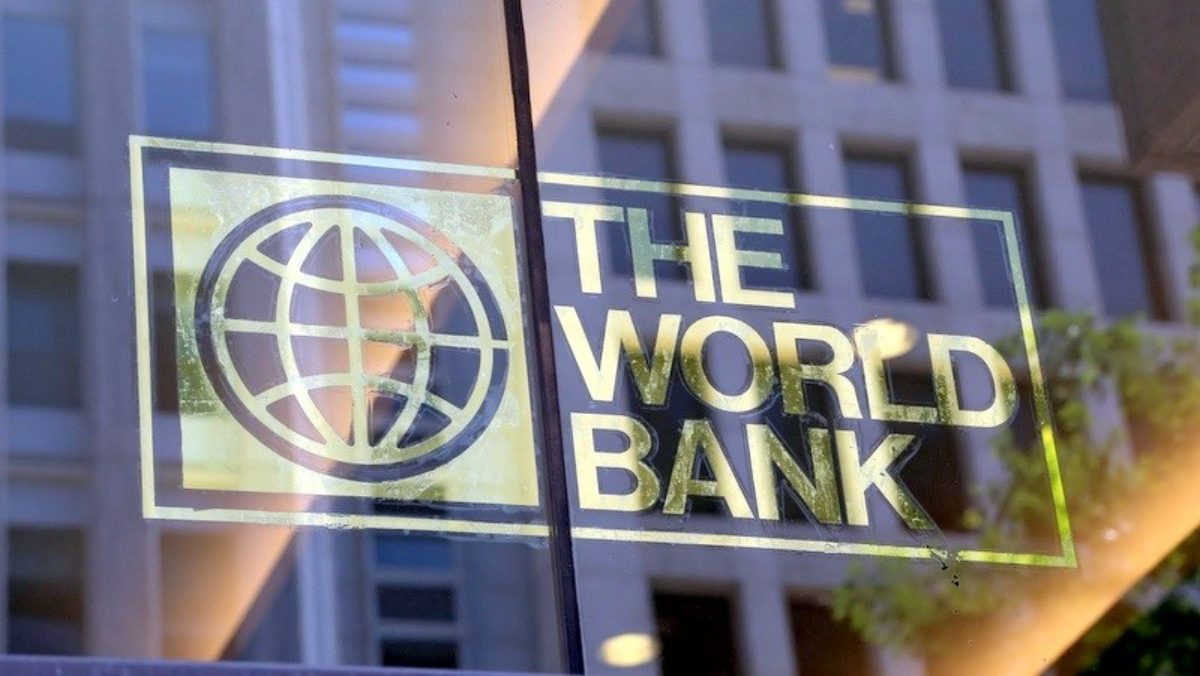Business
World Bank projects Nigeria’s growth for 2022, 2023 at below 4%

Black History
Bernice King’s Redemption Bank is now the first Black-owned in the West

In 2023, a group of Black investors based in Atlanta agreed to buy a white-owned bank, Holladay Bank & Trust, and convert it into a Black-owned one. The investors included Dr. Bernice A. King, a daughter of civil rights icon Dr. Martin Luther King Jr; Ashley D. Bell, a former White House policy adviser, and former NFL player Dhani Jones.
They planned to rename the Utah-based institution Redemption Bank and said they wanted to provide financial services to Black communities historically underserved by financial institutions while offering online banking services and small business loans.
The deal, which was awaiting regulatory approval, would mark the first time Black investors purchased a non-Black bank, a statement by Redemption Holding Company said at the time. It would also be the first time in American history that an existing commercial bank would become a Black-owned Minority Depository Institution (“MDI”) through acquisition, the statement added.
After two years, Redemption has finally completed its acquisition of Holladay Bank & Trust. It makes it the first time a bank has been owned by a Black-led investment group in the Western U.S., the AP reported this month.
The acquisition got delayed due to the collapse of Silicon Valley Bank in 2023, Bell, CEO and chairman of Redemption Holding, told the AP.
“This process has undoubtedly taken longer than any of us anticipated,” Bell said. “However, we are grateful for the diligence of the staff at the FDIC, the leadership of the (American Bankers Association), and the renewed sense of urgency from the new administration this year, all of which helped bring everything together.”
While Bell is the CEO, King is expected to be Redemption Bank’s senior vice president for corporate strategy and serve on the company’s advisory board.
With about $65 million in assets, Redemption Bank will be the first Black-owned bank not physically located within an economically vulnerable community and the first in the Rockies, according to the AP.
It will also be the only one located in the Black-banking desert that stretches from Houston to Los Angeles, the AP added.
The company will further become the 24th Black-owned bank in the nation, termed as Minority Depository Institutions (MDI). MDI is a federal designation for banks and unions that are owned or controlled by minority groups. The most recent MDI was Adelphi Bank, launched in January 2023.
Africa
Hotel groups Hilton and Marriot announce African expansion plans

U.S. hotel chains Hilton and Marriott have announced African expansion drives to tap into the continent’s rapid tourism growth.
Rising business and leisure travel on the continent has made it increasingly attractive for multinational companies and Hilton said on Wednesday that it plans to more than triple its African portfolio to more than 160 hotels.
The company plans to enter Angola, Ghana and Benin for the first time while returning to Madagascar and Tanzania, its statement said without providing a specific time horizon for the expansion plans.
Marriott expects to add 50 properties by 2027, it said on Wednesday. Those will include entry into five new countries: Cape Verde, Ivory Coast, the Democratic Republic of Congo, Madagascar and Mauritania.
The group’s existing African portfolio encompasses nearly 150 properties and 26,000 rooms across 20 countries and 22 brands.
Airlines have also increased their African capacity.
Emirates now offers 161 weekly flights across Africa, recently adding daily services to Entebbe and Addis Ababa. United Airlines launched a direct Washington-Dakar route in May and Delta will begin a seasonal daily flight to Accra in December.
International arrivals to the continent rose 9% year on year in the first quarter of 2025, the United Nations World Tourism Organization says, 16% above the same period of pre-pandemic 2019.
That momentum is translating into economic impact. Tourism accounts for between 3% and 7% of gross domestic product in countries such as Kenya, Morocco and South Africa, and up to 15% in tourism-heavy economies such as Namibia, World Bank and national statistics show.
Business
AfricanShowcase 2025 Set to Transform Barking Town Centre into a Celebration of African Culture and Commerce

Barking Town Centre will come alive with the sights, sounds, and flavors of Africa as AfricanShowcase 2025 arrives for a one-day festival spotlighting the continent’s vibrant culture, commerce, and creativity.
Set for Wednesday, August 13, this dynamic event will feature over 30 curated stalls offering authentic African wares—from handwoven textiles and artisan jewelry to gourmet delicacies and unique cultural artefacts. Designed as both a cultural festival and a business platform, AfricanShowcase connects the public, press, and buyers directly with African creators and entrepreneurs.
Festivalgoers can expect a packed lineup of live entertainment, including performances by drummers, dancers, poets, and singers from Gambia, Ghana, and Nigeria. A high-energy runway fashion show will highlight cutting-edge African designers, while interactive workshops will invite participants to try traditional Kente weaving and head wrap styling.
The event also boasts uplifting music by Afrobeats DJs and a local gospel choir, along with a lively cultural procession that will wind through Barking Town Centre.
Sponsored by LemFi, Abfoods, Mr. Fatai Abiola, and 1Accord Living Ltd, the showcase is proudly supported by the London Borough of Barking and Dagenham Council and Town Centre Manager Lianne Douglas.
“AfricanShowcase is more than a market—it’s a celebration of Africa’s rich heritage, a platform for African businesses, and a joyful reminder of the beauty of cultural exchange,” said Ola Mustapha, Founder of Kiskirine Events Ltd.
Launched in Brent in 2003, AfricanShowcase has evolved into a signature event for celebrating African excellence in the UK, drawing crowds from across the capital. The 2025 edition promises a vibrant day of community, connection, and cultural pride.






















